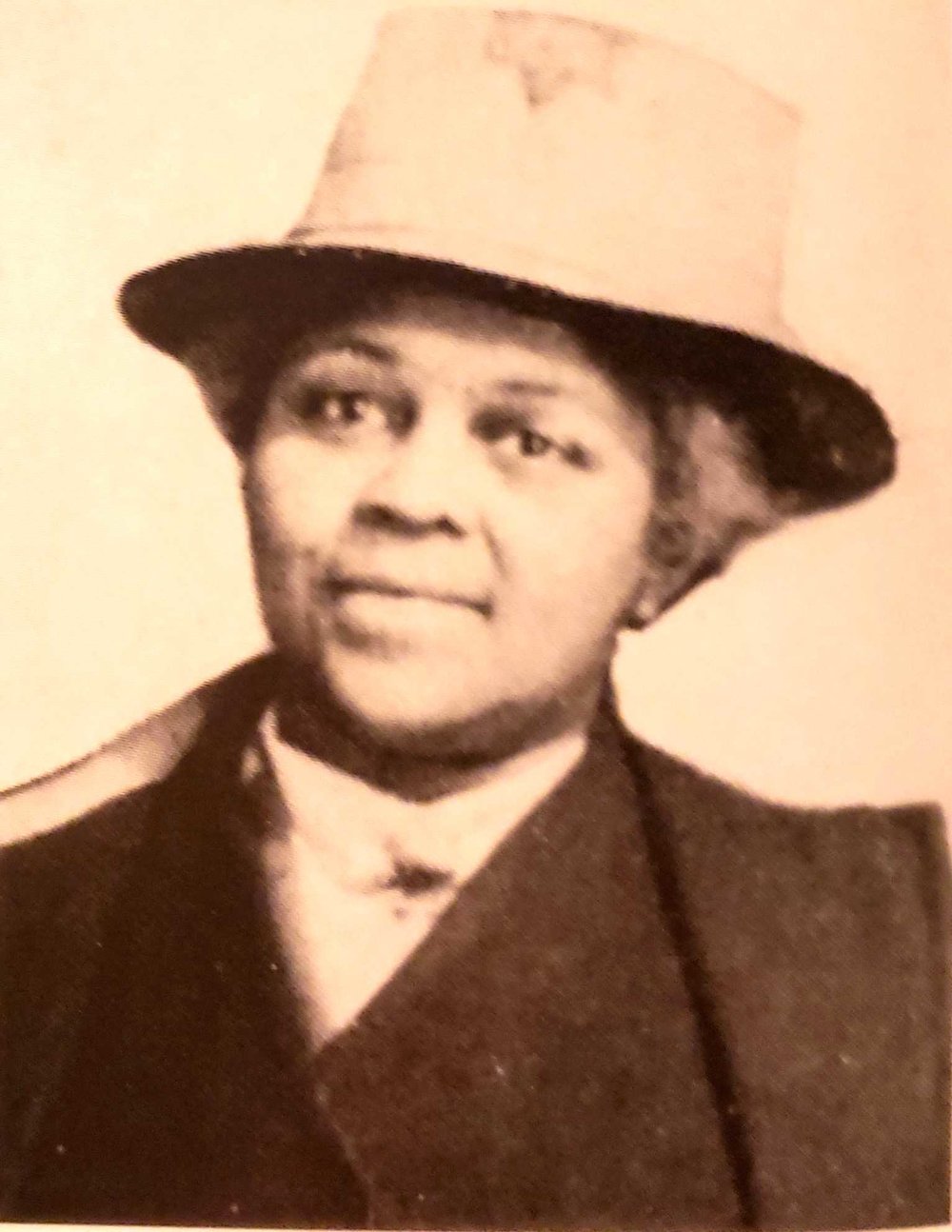Working the Suffrage Booth
By Sherri Goudy
JEWELIA HIGGINS (COURTESY OF MARGARET PETERS, AFRICAN AMERICAN HERITAGE, NATIONAL AFRO-AMERICAN MUSEUM AND CULTURAL CENTER, 1995, 19.)
Providing information about suffrage and engaging with the public was one of the most significant factors in gaining support for the passage of the 19th Amendment. Though there were people ardently opposed, most people were indifferent to whether women were granted the right to vote, and the suffragists knew they needed a wide variety of public campaign tactics to gain support.
Over the past 2 weeks, we shared stories about the national and local strategy for holding suffrage parades. These parades used floats and celebrities and pageantry to draw huge crowds. Another, less flashy tactic was to provide information about suffrage by passing out literature. In Dayton, the local suffrage association set up a booth at the Arcade. A woman was stationed at this booth and would hand out and even sell literature and items to promote suffrage in the community. Evidence of this work is maintained in the archive at the Dayton Metro Library, and it is here where we get a real glimpse into the progressive and inclusive nature of their campaign.
In towns across the nation, the majority of visible work done for suffrage was done by white middle- and upper-class women. However, African American women were also active in participating in the fight for suffrage, though largely through Black organizations. It is in Dayton, Ohio where we see something unique happening. African Americans in Dayton did have their own Black organizations in which they participated. But they also participated in the Dayton Woman Suffrage Association (DWSA) and were welcomed to do so. In the diaries, letters and meeting minutes of the DWSA, we can see that black women were working with the white women and were members of the DWSA. They gave speeches, provided reports, and worked the suffrage booth.
One member, Jewelia Higgins, was in charge of organizing and running the suffrage booth on Mondays. Higgins was a leader within the African American community and women’s club movement. Seeing her name in reports and the diaries of the DWSA, which for a long time represented the white effort for suffrage in Dayton, Ohio, demonstrates evidence of the contrary. It is clear that in Dayton there was a spirit of interracial cooperation which played a huge role in the success of the suffrage campaign here.


